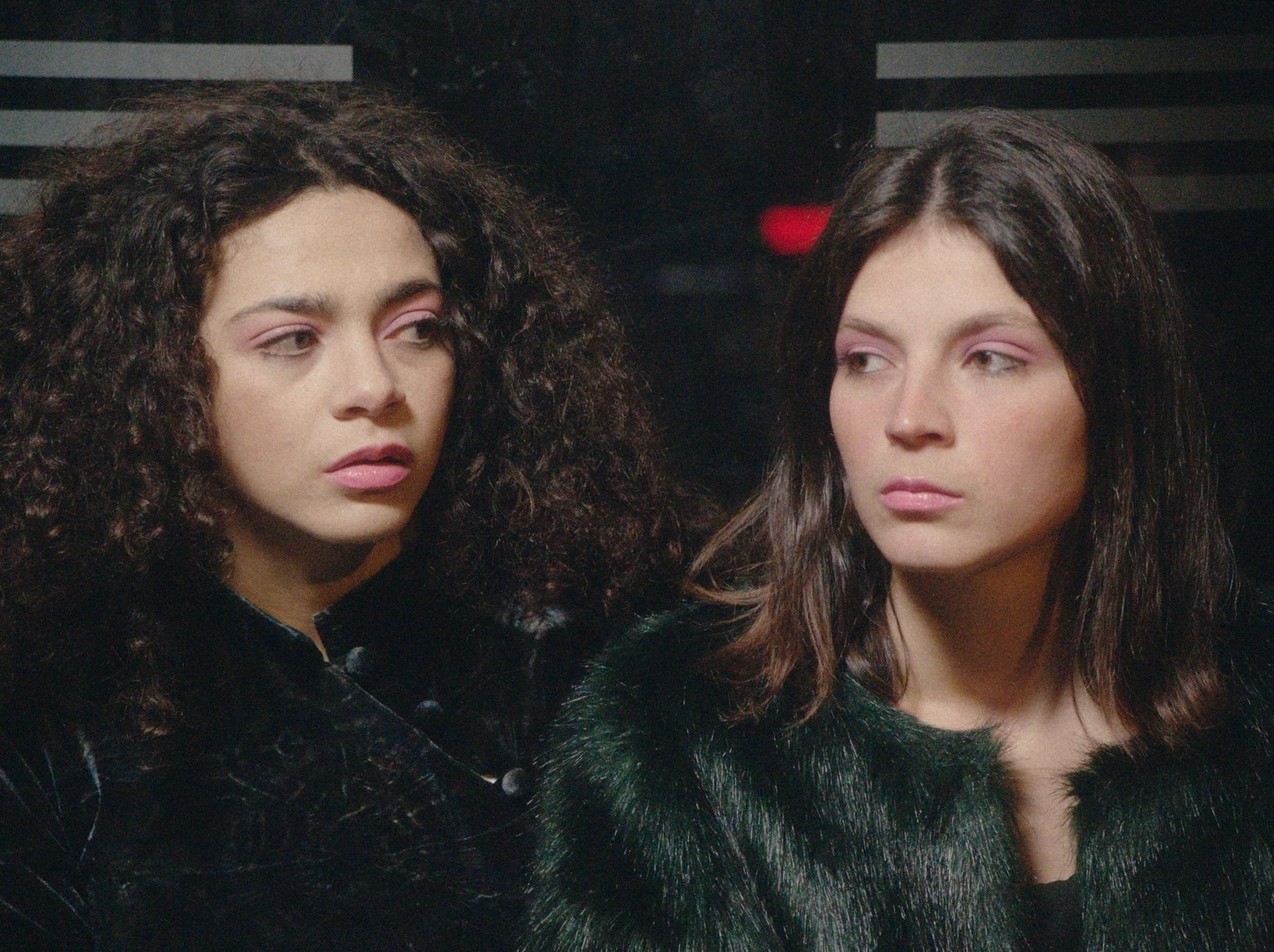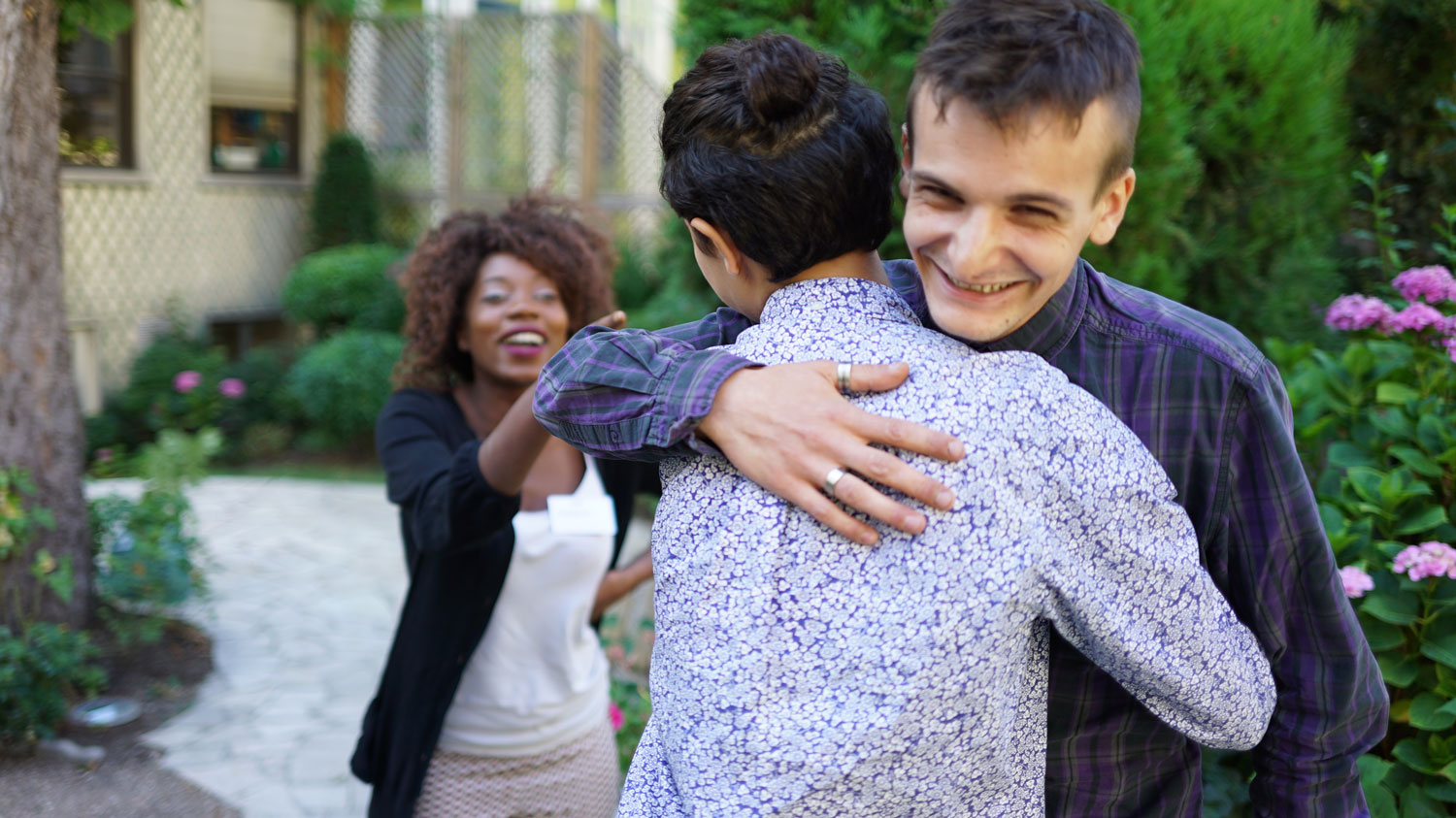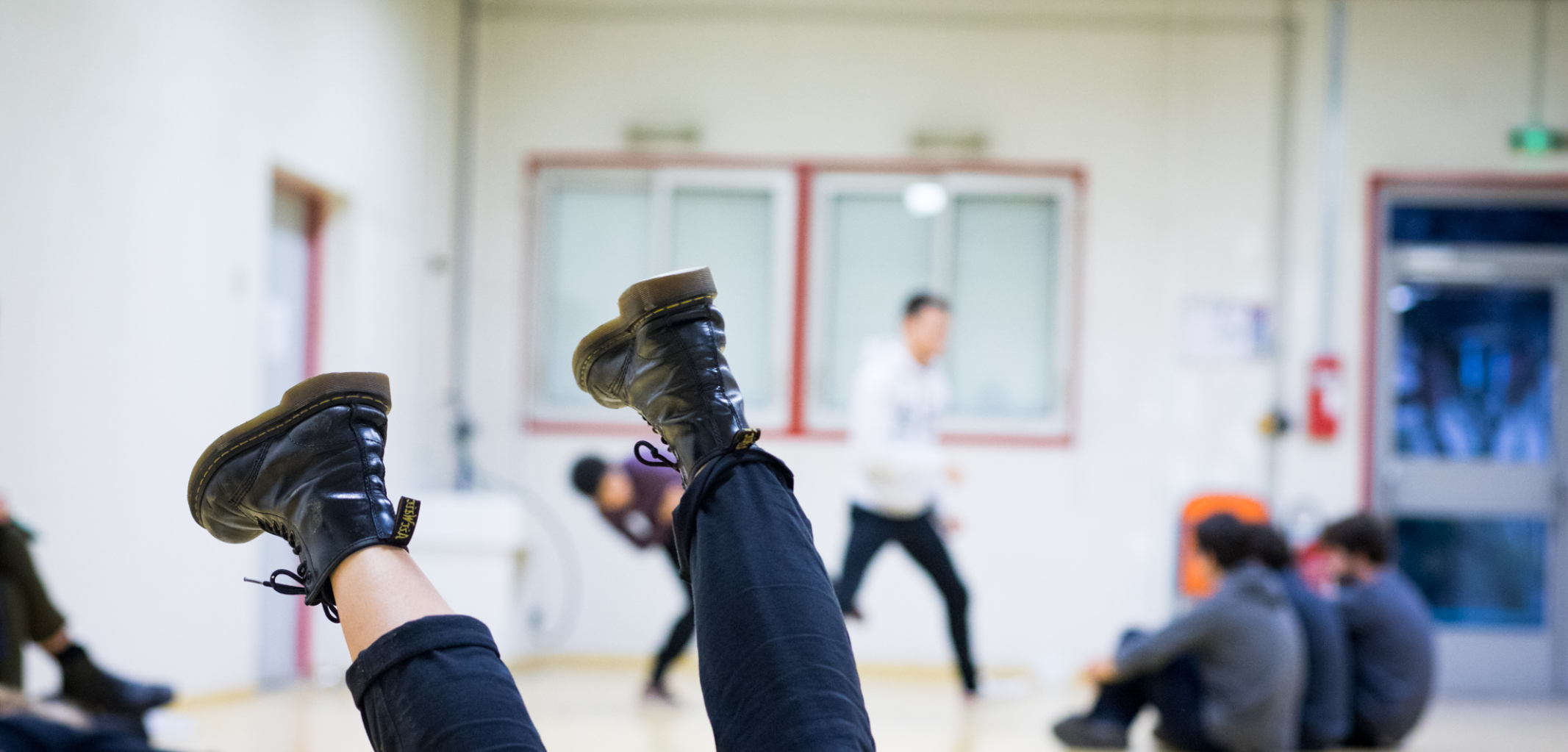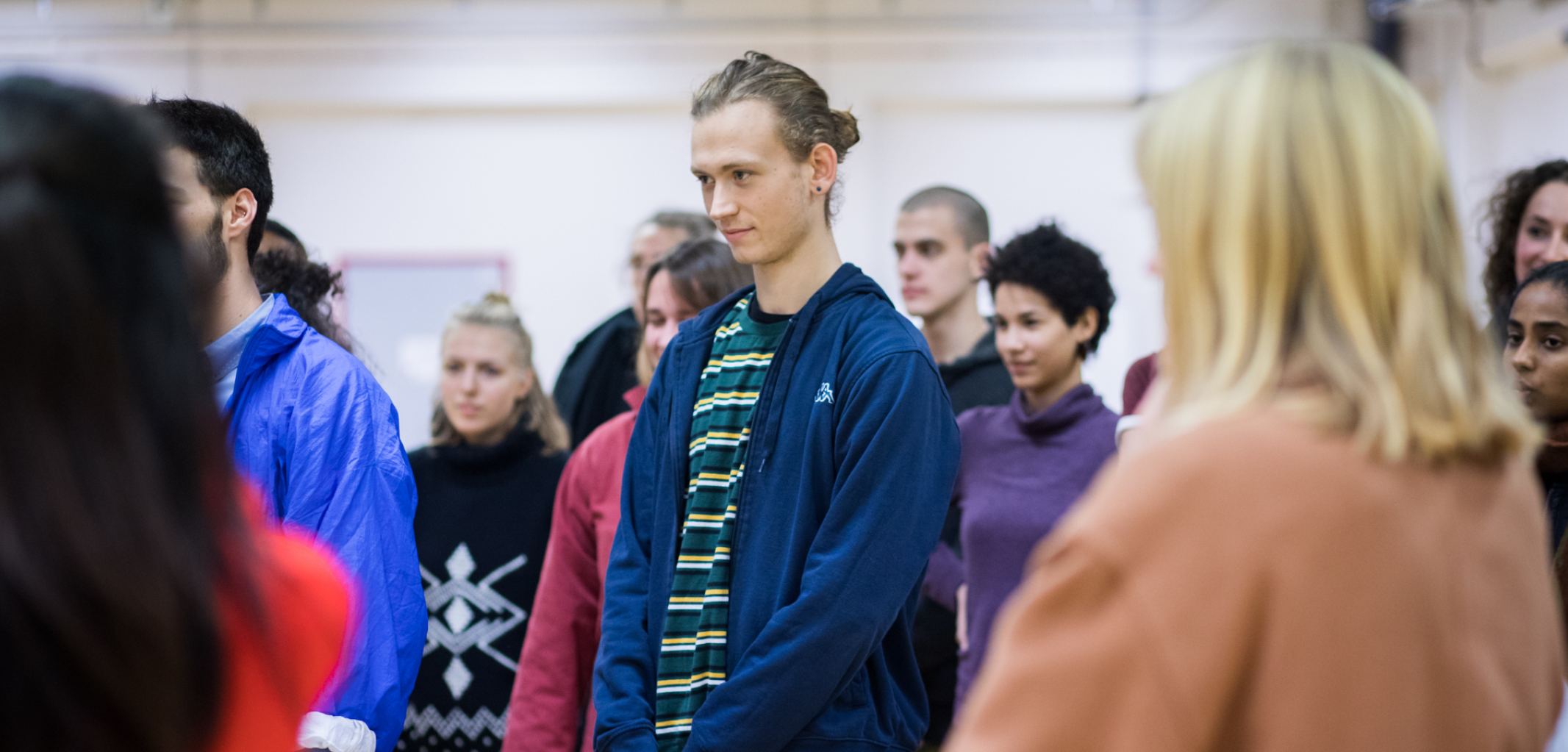
Index: The school
Openness and Diversity
CinéFabrique believes the diversity of its students is one of its greatest assets. And we define diversity broadly to include place of origin, social and cultural background, age, creed, ethnicity, and education level. Students are encouraged to cultivate their differences.
Hands-on Learning
Our learning process is centred around hands-on experiences backed by theory to provide solutions to problems encountered in the field. Each year, students produce over 100 fiction and non-fiction shorts.
Sandwich Courses
To succeed at a job requires more than just a few skills under the belt. Students must also know how to use the techniques, work on a crew, and adjust to different work styles based on the project or whom they are working with. That is why CinéFabrique chooses to offer third-year sandwich courses. We are the only school to provide apprenticeships in film industries.
Experimentation and Genres
CinéFabrique is a laboratory where students are encouraged to experiment with new practices and explore a range of genres, from fantasy, music videos, documentaries, series, and period pieces to comedies, thrillers, dance films, and special effects.
Quality of Teaching
Instructors of both theory and application are nationally and internationally recognised leaders in their fields. More than 500 industry leaders have taught at CinéFabrique in the span of four years. The quality of our teaching is supported by top-notch equipment and technology available for student use.
Student Collaboration and Involvement
Students learn by working side-by-side with their instructors. They are also responsible for tasks around the school, such as setting up, tearing down, cleaning up, organizing, and maintaining tools and equipment. They even work in the school’s dining hall, a cooperative that serves daily cafeteria lunches made from local, organic, responsibly farmed ingredients and compost-fertilized produce from the school garden. Students can be found peeling vegetables between 8 and 9 AM every morning!
Collaboration
Though these days students are expected to specialise in a particular area, CinéFabrique believes it is important to foster a climate of openness and collaboration. Films and other audio-visual works are collective projects where everyone contributes their expertise to bring the project or director’s vision to life. For a film to be successful, collaborators must navigate the balance between a single person’s point of view and the dynamic of a group of technicians. Throughout their 3 years at CinéFabrique, students work on projects not only with other departments, but with students from other class years.
A Chance to Direct
Directing a film means writing a screenplay, assembling a crew, inventing a view of the world, and bringing it to life. CinéFabrique does not offer a directing track in the curriculum, but we do offer a number of lessons each year to all students on directing films and, more specifically, directing performers. Students make over 80 films a year combined, giving them plenty of opportunity to play the role of director.
Community Engagement
CinéFabrique’s philosophy of openness extends beyond the gates of the school. We believe it is essential for students to engage with their local community by choosing relevant topics, streetcasting, screening films open to the public, and teaching visual image classes to local children. Sharing their knowledge challenges students to reassess their practices, alter their point of view, and get outside of their bubble.
A Global Outlook
Through the Ciné Nomad School programme, second year students spend several weeks working with students from 4 continents. Since its inception, the Ciné Nomad School has hosted students from Burkina Faso, Benin, Myanmar, the United States, France, Morocco, Nigeria, and Poland – a global outlook that is fundamental in encouraging students to rethink what they know by exploring other realities and new ways of thinking and storytelling, and to turn those stories into films.
Honing Viewpoints
CinéFabrique educates future leaders of the film industry. Graduates go on to make artistic contributions through their powerful images, quality audio recordings, efficient directing, well-executed production, and gripping screenplays. To help them reach their full creative potential, we not only give students the technical skills they need to succeed, we teach them critical thinking and cultural awareness, skills that extend to other arts, such as theatre, dance, cooking, visual arts, and music.
Learning How to Learn
At CinéFabrique, our goal is to teach students to learn – to learn to be open to an artistic project, to become part of a team, to include each role in the production process, and to find their voice. Given the speed with which technology advances these days, we don’t teach students how to use specific software or cameras, but rather how to invent and master an artistic style in their video, audio, and production.
We believe that film school is, paradoxically, the place where students should be allowed and even encouraged to explore, to learn how to learn rather than accumulating knowledge that will soon become outdated.


